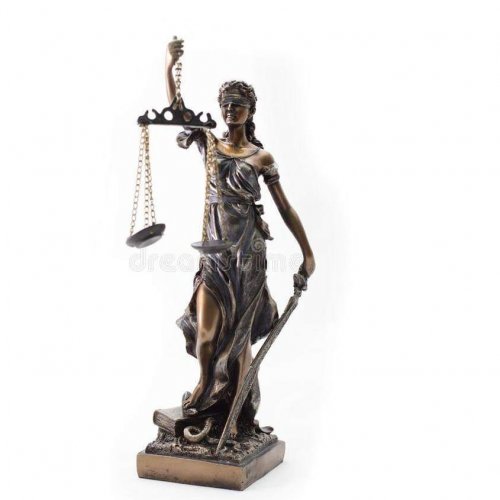Best Native People Lawyers in Trikala
Share your needs with us, get contacted by law firms.
Free. Takes 2 min.
List of the best lawyers in Trikala, Greece
About Native People Law in Trikala, Greece
The ancient and rich culture of Native People in Trikala, Greece, is safeguarded by a diverse set of laws. These laws, many of which date back to the inception of the Greek legal system, serve to protect the native peoples' rights and their cultural heritage. Such legal provisions primarily revolve around land rights, cultural preservation, and community representation. It is essential to understand the legal framework in place to ascertain the rights and responsibilities the law bestows on Native People and those interacting with them.
Why You May Need a Lawyer
There are situations where you may need legal guidance. Disputes related to land rights, cultural infringement, issues pertaining to social and civil rights, or litigation involving native laws demand a legal professional well-versed in Native People Law. Also, the interpretation and application of these laws can be complex due to their historical and cultural significance. Therefore, it is advisable to seek legal assistance to navigate such matters efficiently.
Local Laws Overview
The Greek Constitution, various national laws, and international treaties such as ILO Convention no. 169, to which Greece is a signatory, encompass laws related to Native People in Trikala, Greece. They cover a range of issues from land ownership, cultural preservation, access to education, to representation in local governance. Land disputes are governed by the Greek Civil Code, which provides a legal framework for ownership rights. Additionally, Greece law ensures the preservation and promotion of Native culture, language, and historical monuments by allocating necessary resources, upholding the Sustainable Development Goals.
Frequently Asked Questions
1. What are the key legislations concerning the Native People in Trikala, Greece?
Key legislations include the Greek Constitution, Greek Civil Code, and international treaties like UN Declaration on the Rights of Indigenous Peoples and ILO Convention no. 169.
2. Can Native People in Trikala, Greece, legally claim their ancestral land?
Yes, according to the Greek Civil Code and International law, Native People can legally claim their ancestral lands. However, such claims often involve complex legal processes, requiring expert legal guidance.
3. How does the law protect Native culture in Trikala, Greece?
Native culture in Trikala is protected by laws mandating the preservation and promotion of native languages, traditions, and historical sites. Consequences for violating these laws can include fines and sanctions.
4. What are the rights of Native People in local governance?
The law guarantees representation of Native People in local administration as part of Greece's commitment to participatory governance.
5. What happens in case of violation of the rights of Native People?
Violation of the rights of Native People is a legal offence. Penalties depend on the nature of the offense and may include hefty fines, imprisonment, or both.
Additional Resources
Individuals can contact local bodies such as the Trikala Municipal Office for immediate assistance. The Greek National Commission for Human Rights and the Greece Ministry of Culture and Sports are also instrumental in upholding native rights and heritage protection. The Council of Europe website offers multiple resources on human and minority rights in Greece.
Next Steps
If legal assistance is necessary, start by contacting a local law firm specializing in Native People Law. Community organizations can also provide references. Finally, note that translation services may be helpful in making the legal process smoother and ensuring accurate communication. Reach out to the Greek National Commission for Human Rights or Greece Ministry of Culture and Sports for further information.
Lawzana helps you find the best lawyers and law firms in Trikala through a curated and pre-screened list of qualified legal professionals. Our platform offers rankings and detailed profiles of attorneys and law firms, allowing you to compare based on practice areas, including Native People, experience, and client feedback.
Each profile includes a description of the firm's areas of practice, client reviews, team members and partners, year of establishment, spoken languages, office locations, contact information, social media presence, and any published articles or resources. Most firms on our platform speak English and are experienced in both local and international legal matters.
Get a quote from top-rated law firms in Trikala, Greece — quickly, securely, and without unnecessary hassle.
Disclaimer:
The information provided on this page is for general informational purposes only and does not constitute legal advice. While we strive to ensure the accuracy and relevance of the content, legal information may change over time, and interpretations of the law can vary. You should always consult with a qualified legal professional for advice specific to your situation.
We disclaim all liability for actions taken or not taken based on the content of this page. If you believe any information is incorrect or outdated, please contact us, and we will review and update it where appropriate.








